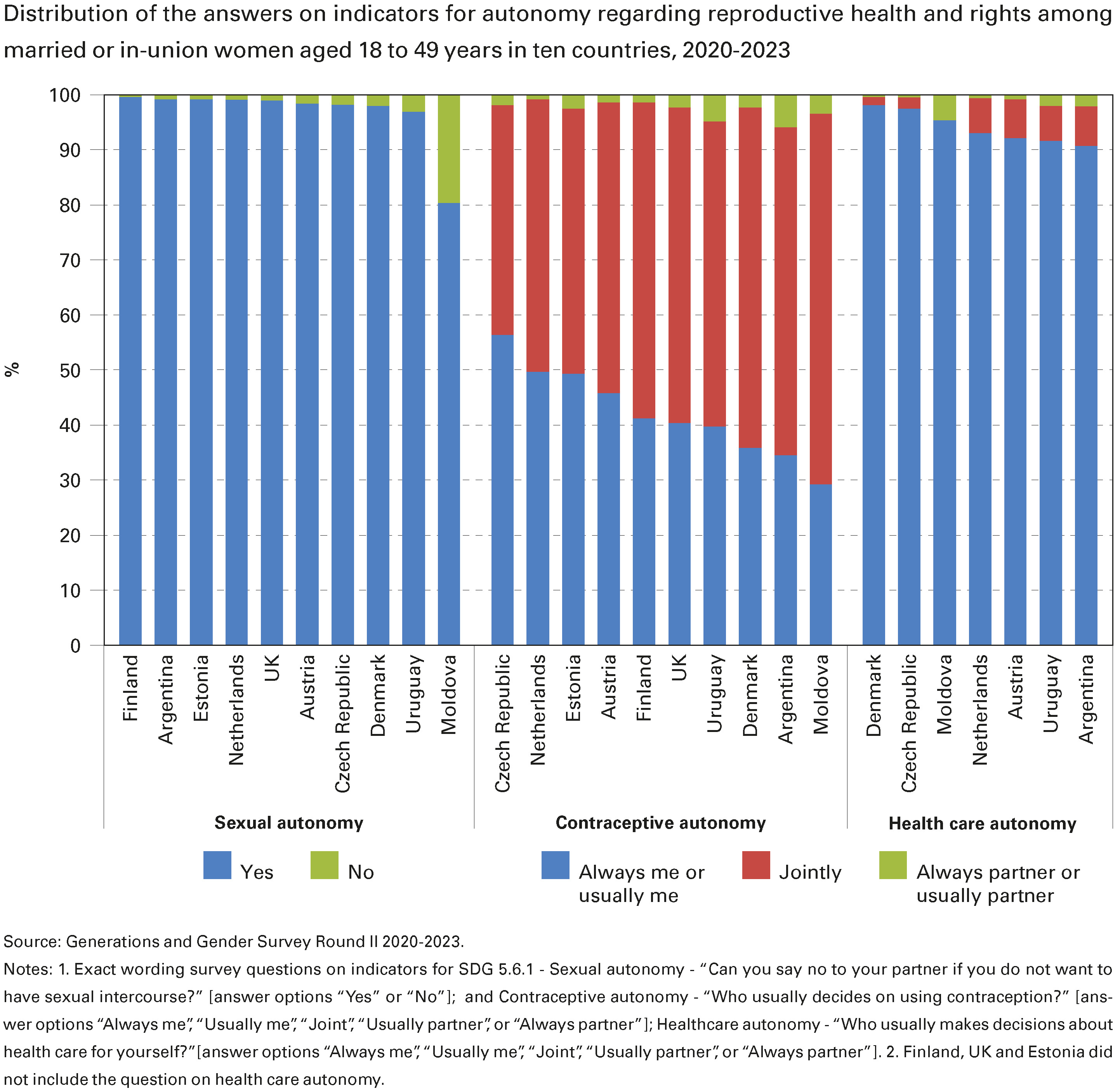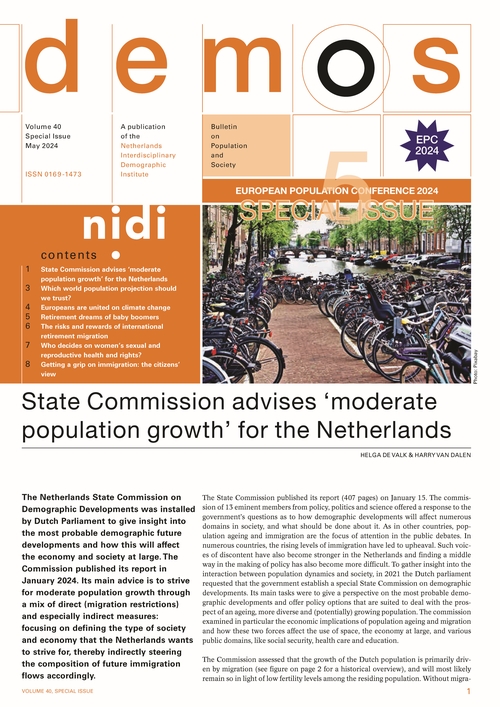In its 2030 Agenda for sustainable development, the United Nations identified ‘achieving gender equality and empowering all women and girls’ as a key goal for the future. One of the targets in this ambition focuses on ensuring universal access to sexual and reproductive health and reproductive rights. This is measured by the proportion of women aged 15-49 years who make their own informed decisions regarding sexual relations, contraceptive use and health care (SDG 5.6.1). A recent UNFPA report looked at data from 57 developing countries, mostly in Sub-Saharan Africa. As it turns out, only half of the married or in-union women aged 15 to 49 can make their own decisions regarding sexual and reproductive health and rights. How does this finding compare to the current situation in economically (more) developed countries? And how large is the variation between developed countries across the world?
The second round of the Generations and Gender Survey (GGS-II) provides an unique opportunity to investigate and monitor women’s autonomy regarding sexual and reproductive health and reproductive rights. Because of the wide geographical coverage, these data allow for comparisons among an economically and culturally diverse set of countries and regions. The baseline questionnaire includes three items that measure the SDG 5.6.1: women’s autonomy in decisions regarding sexual relations, the use of contraception and health care. We present findings for ten countries that fielded a full wave of GGS-II and for which data have been released, or will soon be released (in the case of the Netherlands).
Overall, almost all women can decide on sexual relations, except for Moldova where 20 per cent of the women answered “no” to the question on sexual autonomy (see the figure). Compared to the indicators on sexual relations and health, women’s answers on decisions on contraceptive use stand out. In almost all of the countries, a large share of women report to make these decisions ‘jointly’ with their partner, ranging from 42 per cent in Czech Republic to 67 per cent in Moldova. In the Netherlands, almost 50 per cent of the women report making their own decision while the other half report making joint decisions. When it comes to health autonomy, the majority of women report making their own decisions in all regions, ranging from 90 per cent in Argentina (Buenos Aires) to 98 per cent in Denmark.

The general picture across the countries shows that women have autonomy in their decisions regarding sexual relations, contraceptive use and health care. However, with respect to contraceptive use, the majority of joint decisions seems to point to more variation in the degree of (full) autonomy.
Siyang Kong, NIDI-KNAW/University of Groningen, e-mail: kong@nidi.nl
Lin Rouvroye, NIDI-KNAW/University of Groningen, e-mail: rouvroye@nidi.nl
Anne Gauthier, NIDI-KNAW/University of Groningen, e-mail: gauthier@nidi.nl
Literature
- UNFPA (2020), Tracking women’s decision-making for sexual and reproductive health and reproductive rights. Geneva: United Nations Population Fund.


